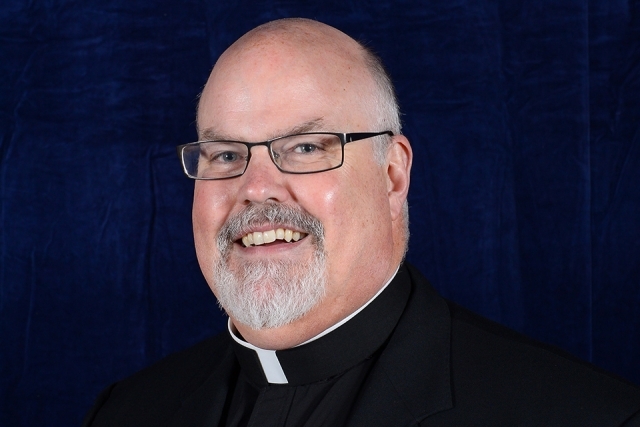A good book is food for the mind and soul. In this recurring series, St. John’s faculty share some of the titles and authors on their “must read” lists that are sure to challenge, stimulate, and delight.

Rev. Patrick S. L. Flanagan, C.M., Ph.D.
Associate Professor, Theology and Religious Studies
St. John’s College of Liberal Arts and Sciences
Member, St. John's University's Board of Governors
My favorite book
The Great Gatsby by F. Scott Fitzgerald. When I was in high school, Sr. Nora Doody, O.P., introduced my classmates and me to this novel. Sister unpacked it in a way that I have done for my business students, pointing to the book’s emphasis on human dignity, authentic relations, capitalism, and the universal common good.
My favorite author
It is a toss-up between James Patterson and Harlan Coben, two masterful and engaging suspense writers.
What is one book every St. John’s student should read?
Just Mercy: A Story of Justice and Redemption by Bryan Stevenson. Confronting injustice is critical if we are to have a healthy, vibrant, common good that accounts for those on the margins.
At the moment, I am reading
Derald Wing Sue’s Race Talk and the Conspiracy of Silence: Understanding and Facilitating Difficult Dialogues on Race. It helps me to be an agent of change in the classroom, at the pulpit, and perhaps even beyond.
The one thing that everyone needs to read
Arthur Miller’s Death of a Salesman. In high school, Sr. Brian Delamer, O.P., highlighted the dynamics of love, relationships, agony, family, corporate life, and integrity. I still have my tattered edition on my shelf.
My favorite place on campus to read
My room at Murray House, the residence for the Vincentians on campus. I turn off technology and enjoy the engagement.
I keep meaning to get around to reading
Doughnut Economics: Seven Ways to Think Like a 21st-Century Economist by Kate Raworth.
I like to reread
Teju Cole’s Open City. It engages readers in deep reflection about dislocation, relationships, and identity, to name only a few of the themes.
If I wrote a book about St. John’s, the first three chapters would be
- Fitness
- Food
- Fun
Hard copy or eReader?
Hard copy. I need to turn pages, especially when reading action or suspense novels. Also, I love sharing my favorites with others.
If I wrote a memoir, the title would be
Non nos Domine. At my first assignment in Germantown, Philadelphia, the African American community taught me, “Not to us, O Lord, but to your name, we give glory.”
Is there a book you require for your classes that is particularly compelling or illuminating?
In my Marketplace Morality course, I ask students to read Good Business: Catholic Social Teaching at Work in the Marketplace. It is a book that seeks to amplify how good businesses can generate a significant return, while positively impacting the common good.
Is there one book that is essential for a successful St. John’s College of Liberal Arts and Sciences student to read?
I often promote Timothy Ferriss’s The 4-Hour Workweek: Escape 9–5, Live Anywhere, and Join the New Rich. Mr. Ferriss offers readers a contemporary examination of conscience.
Fr. Flanagan’s main research interests lay in the areas of information technology ethics. He coauthored Good Business: Catholic Social Teaching at Work in the Marketplace, which applies the themes of Roman Catholic Social Teaching to the corporate world.
He has been published in the Journal of Business Ethics, Journal of Religious and Theological Information, and Chicago Studies. In addition to serving as an editor for the Journal of Religion and Business Ethics, he has served as lead editor for a special annual edition of the Journal of Business Ethics, in conjunction with the International Vincentian Business Ethics Conference.
